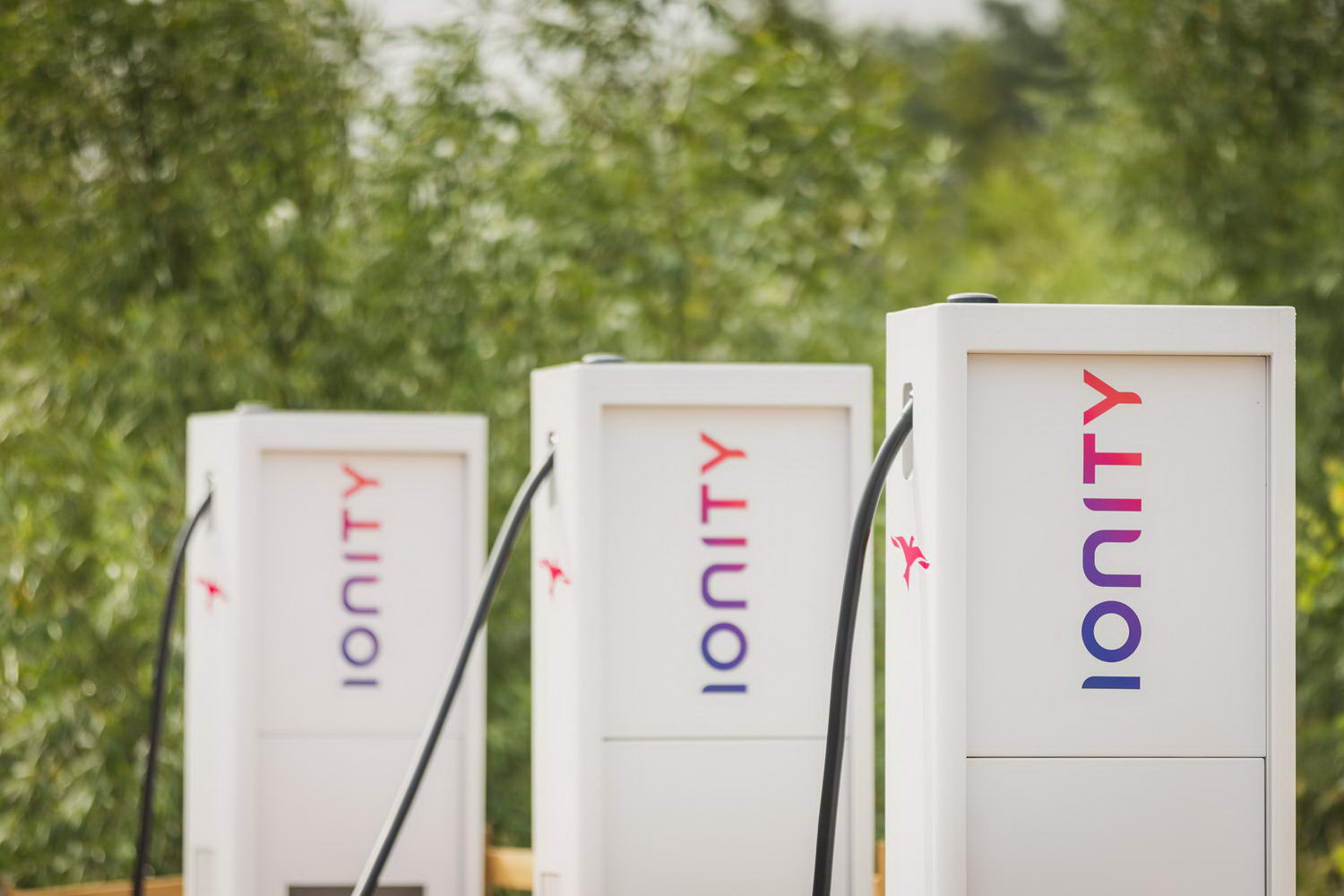The IONITY rapid charging network for electric vehicles is to move away from its flat-rate session price in favour of a per-kWh structure. Since the network began operating across Europe, it offered a single fixed price of €8/£8 per session, regardless of how much energy was used. As of 31 January 2020, users will now face a charge of €0.79 per kWh to recharge their electric cars. In the UK, this price will be £0.69.
Speaking at the announcement, Dr Marcus Groll, IONITY COO, indicated that the company is also mulling over plans to introduce a reduced rate in conjunction with a monthly or annual membership fee for those using the chargers more frequently. IONITY will also continue to work with other Mobility Service Providers (MSPs) such as Audi e-tron Charging Service, BMW ChargeNow, Mercedes.Me.Charge, Porsche Charging Service and Volkswagen WeCharge, all of which will continue to offer bespoke packages to their customers.
More costly for larger capacity vehicles to charge
For owners of electric vehicles with larger capacity batteries, such as the Audi e-tron, Jaguar I-Pace and Mercedes-Benz EQC, the attraction of only having to pay €8 to 'fill' their battery under the introductory offer will be sorely missed. Under the new system, it could cost users up to €70 to fully charge their car using an IONITY point.
"Our network by nature is open, which is a big difference to the Supercharger network from Tesla. So from that perspective everybody is free to use the network, and we see a lot of Jaguar I-Paces on our chargers and actually, probably not a big surprise, the vehicle we see most using our chargers is the Tesla Model 3", said Groll.
The costs with IONITY are more than double that of the ESB's costs for rapid charging, although it's worth pointing out that the IONITY network uses hardware that recharges far more quickly than the ESB. The majority of IONITY chargers operate at charging rates of 150kW, but the company has some locations that are capable of up to 350kW, whereas the current ESB rapid charging units offer up to 50kW. While many cars on sale now cannot charge at such high rates, these units should enable IONITY to future-proof itself as the technology improves. At 350kW, it would be possible to add 200 kilometres of driving range in eight minutes for most EVs. For some, there will be perceived value in having to spend less time plugged in on a long journey.
The IONITY network is on track for planned coverage
At present, the IONITY network is operating in 20 countries, and plans are on course to see that number grow to 24 by the end of 2020. "Most of the remaining 2020 sites are either under construction or are finished planning and awaiting the start of construction, so it remains very realistic to hit the target by the end of this year," said Groll.
We asked what the next chapter of IONITY would entail and whether a move from arterial motorway locations into cities might be on the cards. "It's too early to say will, but would or should could be the right wording," said Groll, adding: "We are in discussion now about what happens after the 400 sites are ready. One concept we are discussing is the topic of urban locations and supporting people who cannot charge at home or in work and don't want to rely on public AC charge points, whereas having charging hubs in city areas could be useful. We all think that this might make a lot of sense and also help the cities because the need for public AC infrastructure could be lower. On the other hand, you need attractive sites in city areas which are pretty hard to get, so from a rollout perspective, it might be a challenge to get access to these interesting areas."
Recently the company enlisted ABB to supply a further 324 charger units capable of 350kW as part of its continued expansion. IONITY was founded in 2017 and is a joint venture of the BMW Group, Daimler AG, Ford Motor Company, the Volkswagen Group with Audi and Porsche and more recently, with Kia and Hyundai.




